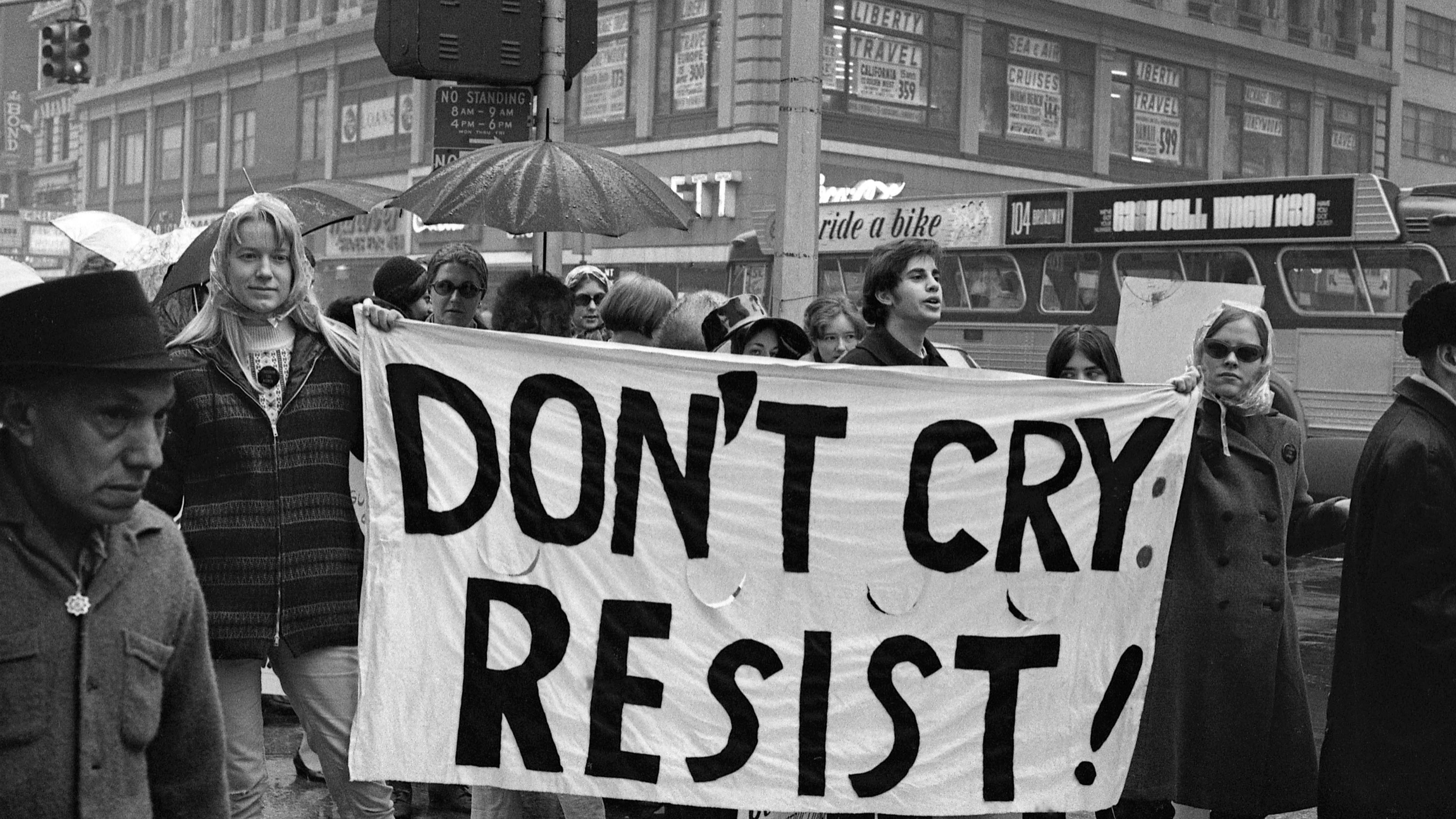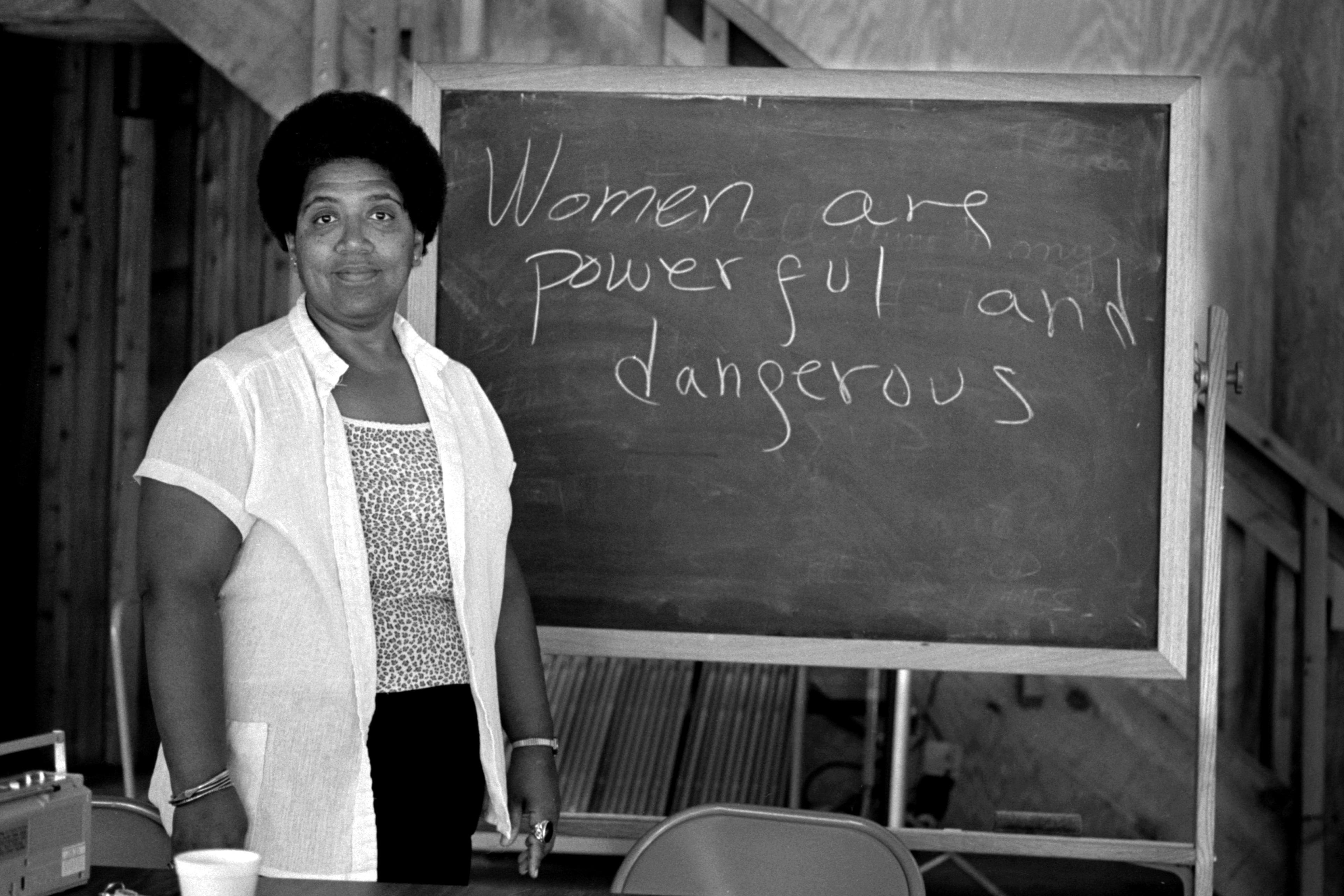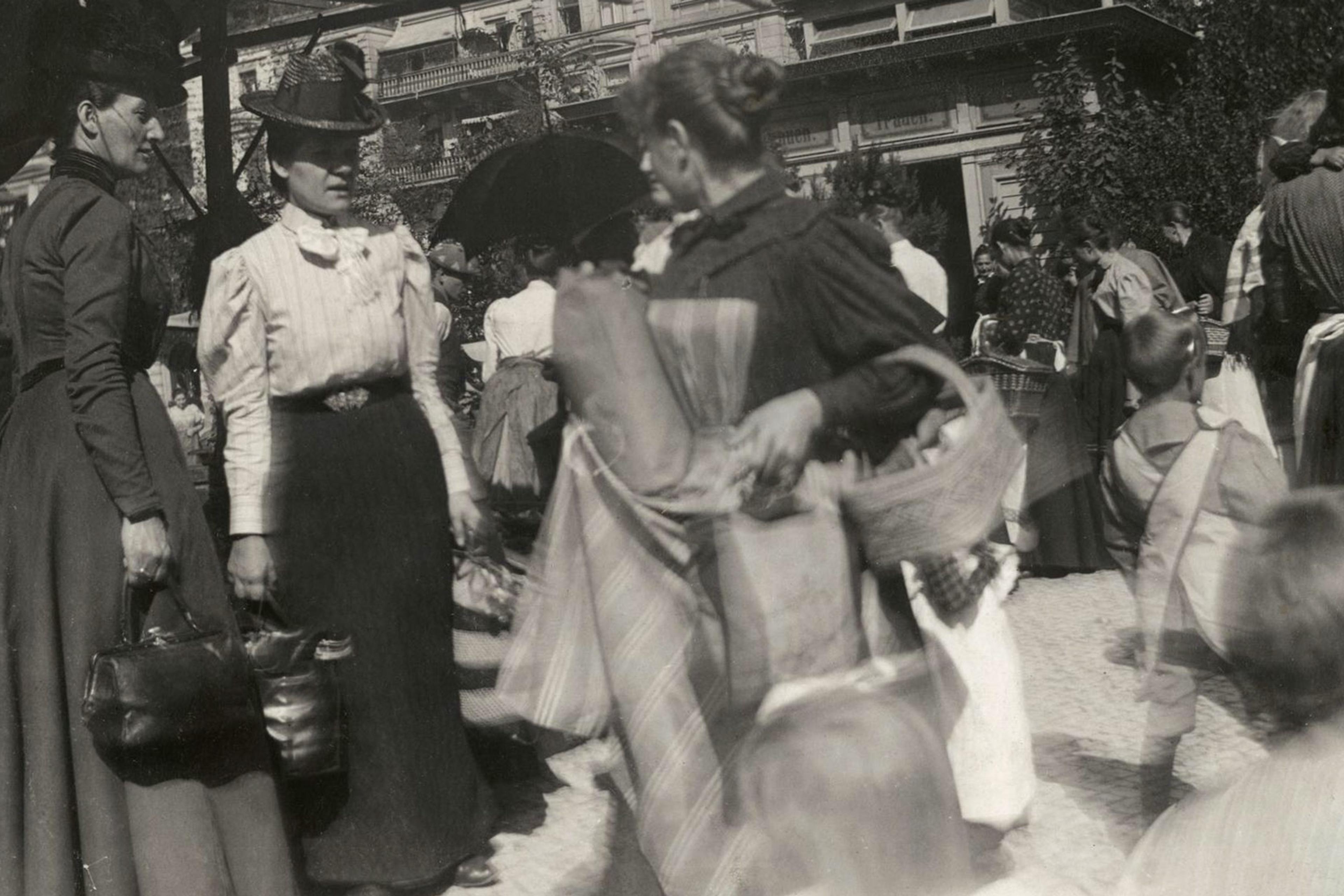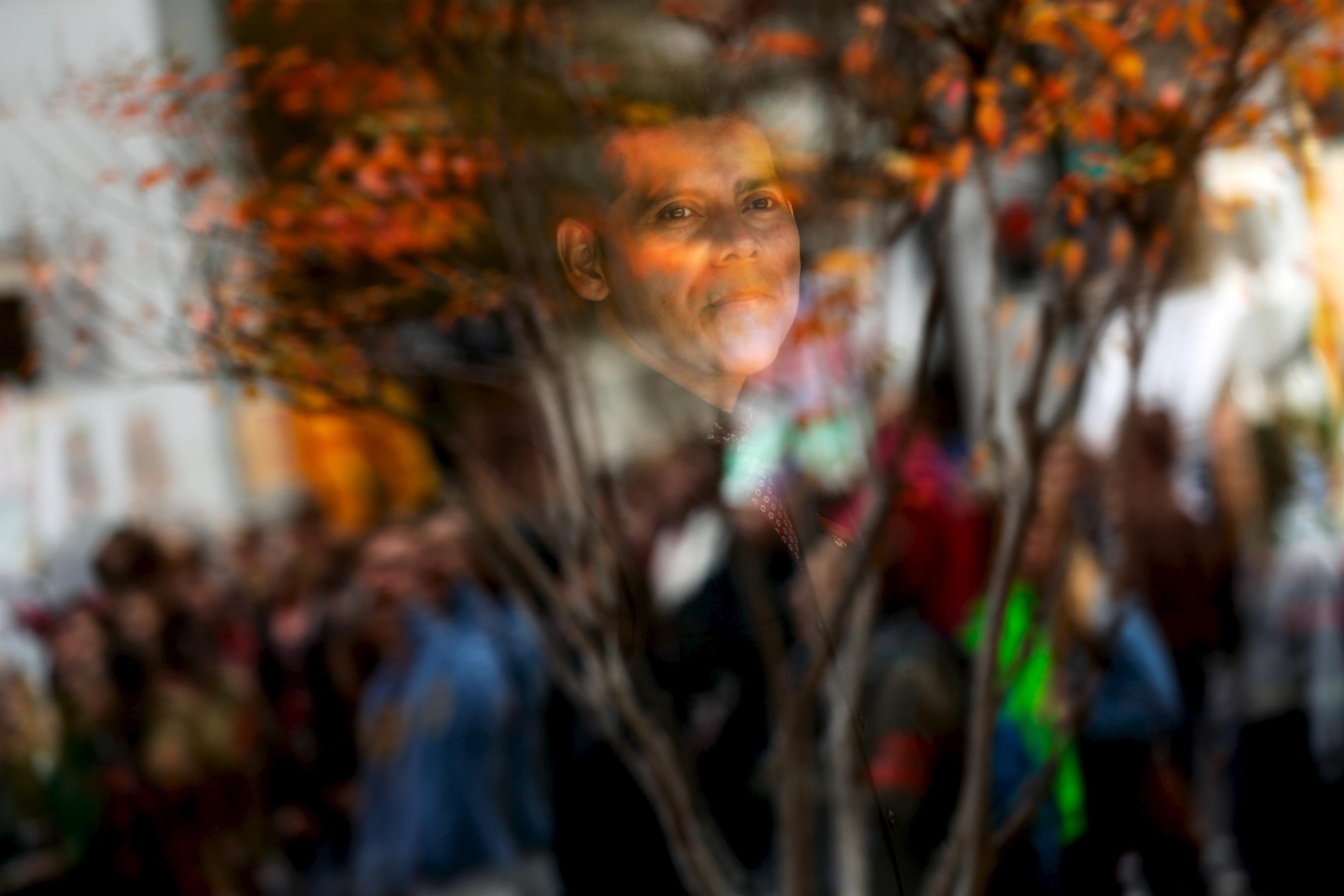One of the many slogans to come out of the culture war in the 1960s, ‘the personal is political’ best defines our own. The past six years of British and American politics have essentially been a fight about how valid and/or noble that sentiment is – how central a place personal feeling and identity should have in the way policy is made, and the way progress is defined. To understand the disagreements about race, sex and gender that divide the West now, we could do worse than go back to where the sentiment began – with second-wave feminists at the end of the 1960s, and with a set of serious ideas that have been cheapened and weaponised at both ends of the political spectrum today.
Before adorning placards (let alone Twitter pages), ‘the personal is political’ had its roots in specific sociological and political analysis. First in print as the title of a 1970 essay by the New York radical feminist Carol Hanisch, it was – according to the movement’s most recognisable figurehead, Gloria Steinem – so ubiquitous that to uncover its origins would be like trying to work out where the term ‘Second World War’ came from. To the young countercultural women who used it, it meant a new way of thinking about injustice – one that would finally treat day-to-day personal suffering with the seriousness it deserved. Fresh out of college, the Civil Rights movement and the bohemian environs of Greenwich Village, San Francisco and Venice Beach, the new generation of feminists posited feelings endured by women as second-class citizens not only as evidence of systemic ills, but as the starting point for theories that might cure them.
Young idealists such as Hanisch and Steinem were part of a new ‘radical’ contribution to the women’s liberation movement that had learnt its politics in the Southern Civil Rights struggle. Building on Betty Friedan’s bestselling book The Feminine Mystique (1963) – a rethinking of women’s social position outside of the home – they used their experience campaigning with the Student Nonviolent Coordinating Committee to develop their own version of the ‘personalism’ that had inspired the Montgomery bus boycotts of the late 1950s and sit-ins of the early ’60s; and that had resulted, promisingly, in the real political change of the Civil Rights Act (1964) and Voting Rights Act (1965).
As James Farrell wrote in his book The Spirit of the Sixties (1997), American activism had been migrating towards the personal since the religious pacifist movements of the 1940s. From Christian objectors to the atomic arms race to the beat movement, Leftist thinking was becoming increasingly spiritual – based less in hard economic arguments and more in how to change culture and individual consciousness to protect ‘the dignity of persons’.
The new generation of women’s liberation activists represented a serious, exciting and uncompromising take on that altered tradition. Like Black Power to Civil Rights, radical feminism brought to Friedan’s second wave a Marx-learnt militancy; an update to Friedan’s appeal to fairness, constitution-rooted rationale and compassion. At the same time, it reached back to a spirit that had energised Martin Luther King Jr’s Alabama Baptist meetings – of communion in suffering and shame, to emerge clean.
Key to radical feminism were what became known as ‘consciousness-raising’ meetings; gatherings whose purpose and tone inaugurated many of the ways the Left talks about social justice today. In small chapters, starting with Hanisch, Kathie Sarachild, Shulamith Firestone and Anne Koedt’s group New York Radical Women, and eventually numbering more than 1,000 across the United States, women gathered to share their experience of everything from ‘sexual harassment in the workplace [to] body image, menstruation and pregnancy’, as the sociologist Nancy Whittier wrote, and to purge themselves of a ‘toxicity’ ingested from the patriarchy. The goal, in the words of the journalist and early participant Susan Brownmiller, was to use individual pain to ‘uncover … collective truths’.
If women were an oppressed class, akin with the proletariat identified by Karl Marx, they too were labouring under a ‘false consciousness’, and their liberation depended on being lifted out of it. Rather than lessons on the dialectics of history, though, their elevation was to come through the supportive spiritual practice feminists had observed during their summers volunteering in the Civil Rights movement. In churches such as King’s Dexter Avenue, local communities were provided with safe spaces to talk about their humiliations under white racism. Those spaces were where hundreds of ordinary men and women found the courage to stand up to power through civil disobedience.
Marrying Marxist analysis with that Baptist method, student-age feminists of the late 1960s developed a cathartic, courage-steeling practice into something more expressly political. Among the ‘collective truths’ they arrived at were the exact needs to be met by (and the most practical ways to organise) female-health clinics, rape-crisis centres and shelters for battered women.
It was in this search for real solutions to real suffering that progressives developed the vocabulary so reviled by the Right and worried about by the centre (and Left) today: words now common to everyday speech, such as injunctions for ‘self-care’, for ‘healing’ by ‘speaking your truth’, and about ‘safe spaces’ to retreat to for fear of being ‘triggered’ by words and ideas. Second-wave feminism synthesised a new politics of language, and protection from it, for generations to come.
Talking intimately to other women, away from the lewd jibes and catcalls they faced at ‘progressive’ activist conventions, Hanisch, Sarachild and Koedt reflected on the power of words to oppress and emancipate. By their new reckoning, patriarchal evil lay not only in the things it forced or forbade women to do, but the words by which they were addressed and described, and which governed the way they felt about themselves.
These early forays into the politics of language were a hardening – and an organising – of sentiments that had been doing the rounds nebulously since the late 1950s. The young people who pilgrimaged to San Francisco for the Summer of Love, and marched in their hundreds of thousands against war, had been responding to a separation of the personal from the political in the aftermath of the Second World War. Theodore Roszak, a historian who coined the phrase ‘the counterculture’ in 1969, explained the flocking of 18- to 25-year-olds to beat poetry, drugs and happenings as a direct rejection of a new ‘technocratic’ form of politics – a postwar liberalism that wanted to bypass anything as historically dangerous as Left or Right ideology, and was traumatised by Nazi and Soviet appeals to mass public feeling.
By fleeing conventional society for rural communes, or ‘dropping out’ to experiment with drugs and roadside living, the hippies saw themselves as the answer to a spiritless rationalism that had not only failed to prevent Auschwitz and Hiroshima, but had laid the groundwork for these catastrophes. To many of their parents, however – and to the otherwise sympathetic Roszak – their marriage of personal lifestyle with political expression repeated Nazi and Soviet tropes. It was dangerously emotive, naively cult-like. In its worship of gurus and its promise of social change through a change in consciousness, it made of personal identity a magical route to political revolution.
A firmer political proposition, radical feminism was met by more serious accusations of totalitarianism – from the Left and the Right, and from the very countercultural thinkers whose spirit they were drawing on. If freedom in the counterculture meant separation from convention, to feminists it meant replacing it with their own; waking up through meetings to the way that words perpetuated your oppression, then going out into the world to show others that these words needed to change.
The tragedy of radical feminism is that its humane emphasis on language produced an irony that paved the way for Donald Trump. By reinterpreting words as violence, young radical women reneged on the first principle of the 1960s counterculture that raised them. Hanisch and others objected to hippy hedonism (preferring ‘study, struggle and organise’ to ‘sex, drugs and rock and roll’), but they were steeped in that movement’s antipuritanical, sexually open and socially conscious ethos. Their new philosophy of speaking a personal truth and raising consciousness led to a shift in countercultural thought – one that made freedom dependent not only on the expression of one’s own honest and messy self, but on the prohibition of the same in others.
‘The personal is political’ signifies a time when the counterculture started owning but also policing its hypocrisies about gender. Following Kate Millett’s headline-grabbing study Sexual Politics (1970), male authors who had been deified in the 1960s for their no-holds-barred approach to sex found themselves blacklisted for sexism – for being part of the problem, not the solution. A movement based on helping the oppressed, on freedom of speech and sexuality, and on saying the unsayable was suddenly also about restricting words and ideas. With overdue progress in the politics of gender came a new significance afforded to words, and a precedent for what is reductively termed ‘cancel culture’ today.
Finally, in dismissing as ‘counterrevolutionary’ macho authors such as D H Lawrence and Henry Miller but absolving their equally brutal but gay counterpart Jean Genet, Millett and others created a compassionate but debilitating double standard: if you belong to a tribe that has been at the wrong end of oppression historically, you have the right to express yourself angrily, messily, fully. To ‘dare to be bad’, in fact, was one of the tenets of women’s liberation, according to two key figures in the movement, Firestone and Koedt. If not, you must hold your tongue until such a time when the injustices of history have been rectified. Minority art is permitted its mess, its self-contradiction, its right to be received as experimental expression only; whereas art made by people from majority groups is taken to signify the maker’s historical privilege, checked for its damaging politics, and required to tread carefully.
These problems with women’s liberation, with the moment in history when the personal cemented its place in public politics, are mitigated by the deep-down human kindness that motivated it. Looking back to the origins of the language and logic we argue with today allows for greater awareness of both. Like ‘stay woke’ – originally a warning between Jim Crow-abused Black Americans to stay alert against racist violence – ‘the personal is political’ means very much more than the point-scoring epithet it has become. A battle cry from another divided age, today it describes not an ideology to be celebrated or scoffed at, but a truism. Regardless of ‘good’ or ‘bad’, there is no use in pining for a time before politics became about personal feeling and identity. What is useful – whatever one’s own politics – is to check the attitudes and arguments we’ve ended up with over these issues against the real conditions and principles that gave rise to them in the first place.








